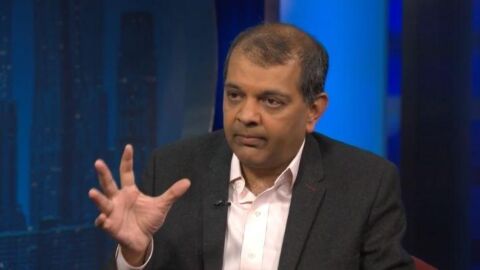Read Transcript EXPAND
DAVID PETRAEUS, FORMER COMMANDING GENERAL, MULTI-NATIONAL FORCE IN IRAQ: Everybody has been reminded that Iran is several times what Iraq was when we invaded in 2003, and it’s four to five times — that’s in population — it’s four to five times the land mass of Iraq as well. So, I don’t think any real serious thought is being given to an actual invasion. Certainly, I’m sure, they’re dusting off plans that I’m quite familiar with, having also been the U.S. central command commander for some kind of punitive strike against Iran, but I don’t think anyone is eager to see that happen. I think the real question is, are the 12 demands that the secretary of state of the United States issued last year, are they negotiable? I tend to think that that is the case and I tend to think that Iran is going to start exploring opportunities, if not this year, then certainly next year, as the currency falls further, it’s already plummeted, as the economy continues to decline quite precipitously, and as inflation increases as the U.S. is taken waiver after waiver away from Iran when it comes to the export of their major commodity, which is, of course, oil.
CHRISTIANE AMANPOUR: So, let me play this soundbite. We’ve already heard from Foreign Minister Zarif who’s talked about a very dangerous game of special interests in the United States seeking to provoke Iran, and that he’s afraid of an accidental war. I’m going to get into that with you a little bit. But first, in regard to what you just said that you think perhaps soon enough Iran will want to come back to the table, this is what he said about that.
(BEGIN VIDEO CLIP)
MOHAMMAD JAVAD ZARIF, IRANIAN FOREIGN MINISTER: We are not willing to talk to people who have broken their promises. Because we talk to people, we did not believe that our nuclear energy program required us to provide any concessions or provide any confidence building measures. But we engaged, we acted in good faith, we negotiated, we reached a deal. What the United States is saying is that, “We make a deal, whatever we can get you in the negotiations through the deal is fine, whatever we cannot get you, we’ll come back to try to get you.” This is not the way serious countries deal with each other.
(END VIDEO CLIP)
AMANPOUR: I mean, he has a point, right?
PETRAEUS: For serious countries, they don’t engage in militia activity in countries around them. They don’t try to Lebanonize Iraq and Syria and, perhaps Yemen, the way that they Lebanonized Lebanon, in other words, build a very powerful paramilitary and then get substantial votes in the parliament as well. So, again, certainly, and I am very clear that Iran did not violate the nuclear agreement, which the U.S. is a party to in multilateral agreement, I’m not sure I would have recommended leaving it. But I certainly have shared the concerns of this administration, which is a bipartisan concern about the so-called malign Iranian activity, the effort to establish a Shia Crescent, if you will.
About This Episode EXPAND
Christiane Amanpour speaks with Gen. David Patraeus about Iran; and chef José Andrés about the role of meat in climate change. Hari Sreenivasan speaks with Suketu Mehta, who says the West is being destroyed not by immigrants, but the fear of immigrants.
LEARN MORE


